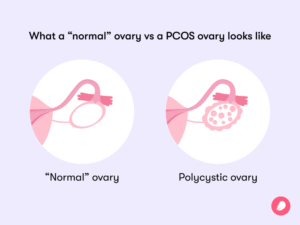Palm Oil_ Health Effects to Know
Understanding the Health Effects of Palm Oil
Palm oil, derived from the fruit of the oil palm tree, is one of the most widely used edible oils in the world. Extracted from the flesh of the fruit, it is different from palm kernel oil, which is produced from the seed. Palm oil is a key ingredient in many food products and offers certain nutritional benefits, such as vitamin E and beta-carotene. However, its health impacts have been debated, particularly regarding its saturated fat content.
Nutritional Profile of Palm Oil and Its Antioxidant Benefits
Palm oil contains a mix of saturated and unsaturated fats. It also includes antioxidants like vitamin E and beta-carotene, which may offer health benefits. While some studies suggest that these antioxidants could help prevent oxidative stress, others warn against its high saturated fat content, which may have harmful effects on health, particularly cardiovascular health. The World Health Organization (WHO) has linked the excessive consumption of palm oil to an increased risk of heart disease due to its high saturated fat content.
Saturated Fats and Heart Health Risks
Palm oil is composed of roughly 50% saturated fats, 40% monounsaturated fats, and 10% polyunsaturated fats. The high level of saturated fat found in palm oil, similar to other tropical oils like coconut oil, can raise LDL (low-density lipoprotein) cholesterol levels, which is often referred to as “bad” cholesterol. The American Heart Association recommends limiting saturated fat intake to less than 6% of total daily calories. For someone consuming a 2,000-calorie diet, this would amount to no more than 120 calories or 13 grams of saturated fat per day.
Scientific Findings on Palm Oil and Cardiovascular Disease
Research indicates that the consumption of palm oil can increase levels of atherogenic LDL cholesterol, contributing to plaque formation in arteries. However, studies have shown mixed results regarding palm oil’s impact on heart health. Some studies suggest that the palmitic acid found in palm oil, when sourced from plants, may not have the same cardiovascular risks as palmitic acid from animal fats. Additionally, tocotrienols in palm oil may help reduce LDL cholesterol levels, offering some protection against heart disease.
The Role of Palm Oil in Inflammation
Palm oil contains palmitic acid, which has been linked to inflammation. While this saturated fat is known to promote inflammatory processes, some studies have found that palm oil might not have a negative impact on inflammation due to its antioxidant properties, such as tocotrienols. These compounds, part of the vitamin E family, could counteract some of the pro-inflammatory effects of palm oil.
Palm Oil and Cancer Risk
Some research suggests that diets high in fats, particularly those containing more than 25% fat, may increase the risk of certain cancers, including breast, colorectal, and prostate cancer. While palm oil’s potential role in cancer risk has not been fully explored, there are concerns regarding the formation of acrylamide during the heating of palm oil at high temperatures, especially in cooking processes. Acrylamide is a compound that may be linked to cancer development.
Palm Oil’s Impact on Type 2 Diabetes
Research in animals suggests that palm oil may impair glucose tolerance and insulin sensitivity, which are key factors in the development of type 2 diabetes. However, studies in humans have produced inconclusive results. Some evidence indicates that the excessive intake of saturated fats, such as those found in palm oil, may lead to liver and visceral fat accumulation, which can contribute to insulin resistance and the onset of diabetes.
Environmental Impact of Palm Oil Production
Palm oil cultivation has significant environmental implications, particularly in Southeast Asia. Deforestation caused by palm oil plantations contributes to habitat loss, threatens endangered species, and leads to the emission of greenhouse gases. Additionally, the practice of slash-and-burn farming results in air pollution, which can lead to respiratory issues, cardiovascular diseases, and other health problems in the affected regions.
Common Food Products Containing Palm Oil
Palm oil is commonly found in a variety of processed foods. The oil is often refined into palm olein, a liquid form used in cooking oils, and palm stearin, a more solid form used in products like margarine. Foods such as baked goods, processed snacks, chocolates, and ice cream are frequently made with palm oil. It is also used in non-dairy creamers, salad dressings, and microwave popcorn.
Who Should Limit Palm Oil Consumption?
People with high cholesterol levels should consider limiting their intake of palm oil due to its potential to raise LDL cholesterol. Additionally, pregnant and breastfeeding women, as well as young children, should exercise caution when consuming palm oil supplements or products containing high amounts of the oil. It is also important for individuals on blood-thinning medications to consult their healthcare provider, as palm oil may interact with anticoagulants, potentially increasing the risk of bleeding.
Comparing Palm Oil with Other Cooking Oils
Palm oil is a staple in many food products, accounting for over half of the global vegetable oil consumption. While it contains less saturated fat than butter or coconut oil, it is still considered high in saturated fat compared to other vegetable oils, such as olive oil. However, it is free from trans fats, making it a healthier choice than partially hydrogenated oils commonly found in processed foods.
Key Takeaways on Palm Oil and Health
While palm oil has some nutritional benefits, including antioxidants like vitamin E and beta-carotene, its high saturated fat content can pose health risks, particularly for heart health. Consumption should be moderated, especially for those with high cholesterol or existing cardiovascular conditions. Palm oil’s environmental impact also raises significant concerns, particularly regarding deforestation and pollution. It is important to consider both the health and environmental aspects when making dietary choices.
Frequently Asked Questions
What foods contain palm oil?
Palm oil is present in many processed foods such as baked goods, chips, chocolates, margarine, cooking oils, and snack foods.
Who should avoid or reduce their palm oil intake?
People with high cholesterol, those who are pregnant or breastfeeding, and individuals on certain medications should consult their healthcare providers before consuming palm oil.





